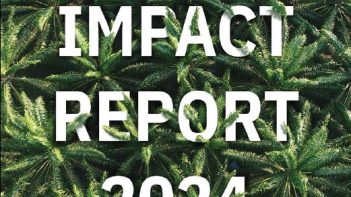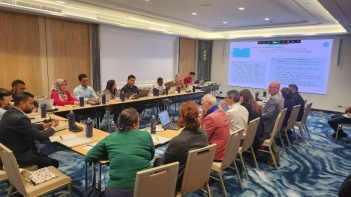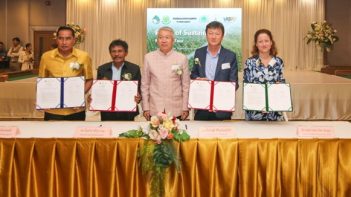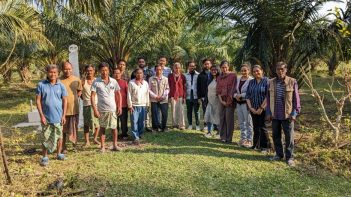The RSPO Board of Governor (BoG) has endorsed the New Planting Procedure (NPP) at their recent meeting in November 2015. This endorsed document, NPP 2015 replaces the earlier version which was published in 2009 (this includes the five supporting documents as published on the RSPO website).
The process for updating the NPP began early 2015 with the production of the initial draft which was put through the BoG. Following best practices, the draft was published on RSPO website for a 60 day public consultation from 3rd August – 2nd October 2015 seeking recommendations and inputs on the draft document. To improve public understanding on the contents and its implication for RSPO producer members and other affected stakeholders, the RSPO held face to face consultations in Malaysia, Colombia, Indonesia, Ghana and Gabon.
The final draft together with the sanctions for non-submission of NPP was endorsed by the BoG on 20th November 2015. The NPP 2015 supersedes the earlier version and its related supporting documents.
The NPP 2015 is effective from 1st January 2016 (with a 6 (six) months grace period). That means that NPP’s issued to the RSPO/CB’s between 1st January 2016 and 1st July 2016 can be based on the earlier version or the NPP 2015. However RSPO producer members, certification bodies (CBs), assessors and other affected stakeholders are strongly encouraged to start implementing NPP 2015 as it will be made compulsory by 1st July 2016.
- Sanction whereby new planting areas (developed after January 2010) that has not gone through the NPP process will not be able to trade the CPO and PK as CSPO and CSPK for the first 3 years after its certification. If these areas are part of the management unit being certified, the mill will be registered as producing mass balance CSPO and CSPK during the sanction period. This sanction is effective immediately as of 1st January 2016.
- This sanction is not applicable to independent smallholder.
- For the management unit which has not gone through the NPP process and at the same time did not comply with the HCV assessment requirement,
- Sanction is applied for not submitting NPP
- Shall follow procedures described in the Remediation and Compensation Procedures (RaCP) 2015.
- For the management unit that has not gone through the NPP process and at the same time did not comply to elements of the RSPO P&C Principle 7 (i.e SEIA, FPIC, HCS), it will be referred to and dealt with Complaint Procedures. In such cases, the Complaints Panel (CP) will decide on the sanctions.
For further clarification on the NPP update and the relevant sanctions for non-submission, please contact Mr Salahudin Yaacob, RSPO Technical Director ([email protected]) or Mr Jan van Driel, Head of Certification ([email protected])
Keep reading

Prolade Secures US$15 Million Financing from IDB for Sustainable Palm Oil Production
Call for Expression of Interest: Independent Verifier for the Implementation of Respondent’s Action Plan

RSPO Impact Report 2024

Assurance Standing Committee Drives RSPO's Vision for Sustainable and Equitable Palm Oil:ASC Highlights, Second Half of 2024

Thai Palm Oil Mills Association Announces Support for Thai Oil Palm Farmers to Achieve RSPO Global Sustainability Standards
Transition Period from PalmTrace to prisma
Report on Independent Review of RSPO Labour Auditing Guidance (LAG)

Thank you to all RT2024 sponsors!




